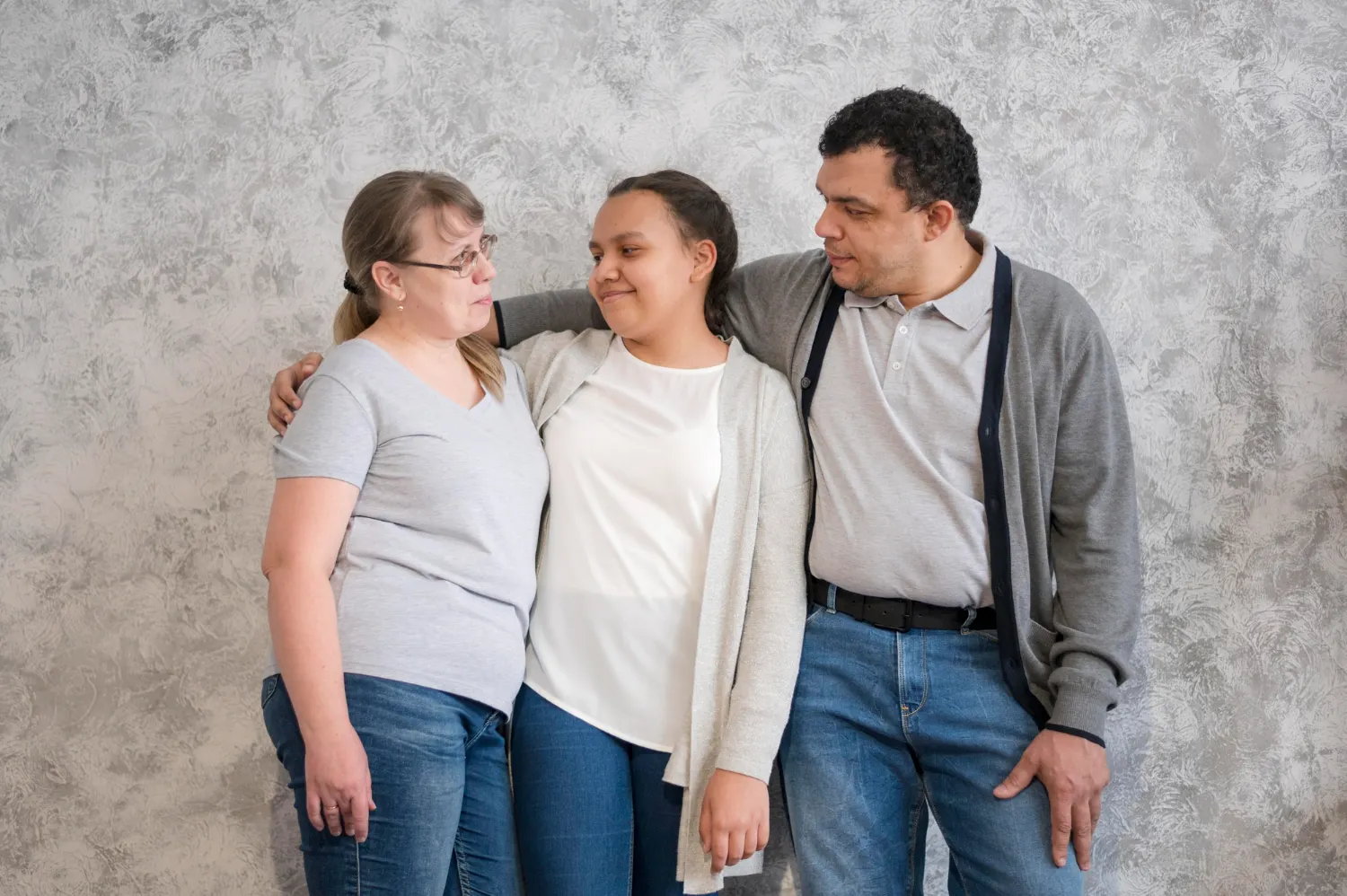Reimagining Family Bonds
Thriving Through the Boomerang Generation Challenges

[toc]
Curious about the modern twist on the classic 'empty nest' scenario, where the return home isn't just a temporary phase but a transformative journey for both generations? In the realm of modern family dynamics, a fascinating shift has taken place, giving rise to what we now know as the Boomerang Generation. The term might conjure images of a carefree flight, a return to the familiar, but it encapsulates a profound societal transformation that echoes the changing winds of our times. These are not the same kids who left home; they're now young adults, brimming with experiences and insights from the world beyond.
The Boomerang Misnomer
The concept of Boomerang Kids has emerged as a natural response to the evolving landscape of education, careers, and personal growth. These young adults return with a different vantage point, having tasted independence, explored the complexities of higher education, navigated the labyrinthine corridors of the job market, and perhaps even sought personal adventures abroad.
The term "Boomerang" might inadvertently undermine the profound transformation these young adults have undergone. They come back not as mere boomerangs, but as evolved individuals with a broader understanding of the world and their place within it. The familial home they return to might still hold echoes of their childhood, but the interplay of experiences, aspirations, and knowledge gained makes this homecoming more complex and enriching than a mere curve on a trajectory.
In the following pages, we embark on a journey to not only understand this trend but also to navigate it with wisdom and empathy. The Boomerang Generation is far from a misnomer; it's a reflection of the shifting tides of today's society, a poignant testament to the challenges and opportunities of our era. Join us as we explore how to navigate this new paradigm with open hearts and a readiness to embrace change.

Understanding the Boomerang Generation
To the Boomers, who witnessed a different era, the concept of Boomerang Kids may initially appear puzzling. Their own transition into adulthood often involved an early departure from home, driven by dreams of financial independence and societal norms that championed self-sufficiency. Their experience was shaped by economic conditions that were different from today's reality.
For many Boomerang Kids, the allure of independence collides with the reality of student loan debt and soaring housing costs. Pursuing higher education often means acquiring substantial debt, making it challenging to establish a firm financial foothold early in their adult lives. Additionally, the demands of an increasingly competitive job market and the desire for advanced degrees further contribute to the delay in achieving financial independence.

The Emotional Landscape
As adult children move back home, parents can experience a myriad of emotions. On one hand, they might feel pride that their children have decided to come home. On the other hand, concerns about their offspring's ability to stand on their own two feet and the disruption of their long-awaited 'empty nest' phase can lead to frustration. These mixed feelings are entirely valid and are part of the shared experience of many parents.
Amid this complex interplay of generational perspectives, another emotional landscape unfolds as young adults return home. For them, the transition can be a mix of excitement and apprehension. They return not as the same individuals who once left, but as evolved versions who have tasted independence and explored the intricacies of the world. They may carry a heightened sense of responsibility and a yearning to prove themselves while reconciling with the safety and familiarity of their family home.

 Negotiation Skills for Both Generations
Negotiation Skills for Both Generations
Amidst the dynamic landscape of the Boomerang Generation, successful coexistence hinges on effective negotiation skills from both the Boomer and Parent perspectives. Navigating this phase requires a delicate balance of understanding, empathy, and compromise.
Open and honest communication becomes the cornerstone for navigating these emotional waters. Initiate conversations about expectations, responsibilities, and personal goals. It's essential to recognize that the return of your Boomerang Kids is a response to the evolving challenges of the new world.
Here are some key negotiation skills to consider for both sides:
For Boomers:
Open-Mindedness: Embrace the changing landscape and recognize that the path to adulthood today is different from your parent's experience. Be open to hearing your parent's aspirations and challenges without judgment.
Flexibility: Adapt your expectations to the realities of the current job market, education costs, and economic pressures. Flexibility in timelines and financial contributions can alleviate stress and foster a cooperative atmosphere.
Active Listening: Pay close attention to your own needs and concerns. Active listening promotes better understanding and demonstrates your willingness to consider other perspectives.
Setting Boundaries: While being Sensibly Selfish, establish clear boundaries regarding responsibilities, finances, and personal space. These boundaries provide a structure for the cohabitation phase.

For Parents:
Empathy: Recognize that this phase might be challenging for your adult child as they navigate career transitions and financial uncertainties. Put yourself in their shoes to better understand their emotions.
Effective Communication: Clearly articulate your expectations, concerns, and the reasons behind certain decisions. Avoid making assumptions and encourage an open dialogue to address any potential misunderstandings.
Compromise: Acknowledge your adult child’s journey toward independence. Be willing to compromise on certain aspects while still upholding mutual responsibilities and shared goals.
Respect for Autonomy: Understand that your Boomerang Kid has gained experiences and knowledge outside the home. Respect their autonomy, allowing them to make their own decisions and contributions to the household.
Both sides should approach negotiations with patience and a willingness to find common ground. It's crucial to recognize that the goal is not just coexistence but also growth. By fostering an environment of mutual respect, understanding, and open communication, both Boomers and Parents can navigate this phase with grace and emerge with stronger relationships and valuable life skills. Remember, this journey is a collaborative one, and the negotiation skills developed during this time will serve as valuable assets throughout life's myriad transitions.
Nurturing Independence While Under One Roof
Balancing the fine line between offering support and fostering independence is a daily tightrope that requires work on both sides. Establishing ground rules and expectations from the outset can help avoid misunderstandings. Collaboratively create and negotiate a plan that outlines financial contributions, chores, and personal space arrangements.
Encourage your adult child to continue pursuing their passions and career goals. Allocate time for them to engage in internships, workshops, or online courses that can enhance their skills. Guiding while allowing them to make decisions independently empowers them to take ownership of their lives.

Building a Positive Environment
Creating a harmonious household environment involves recognizing each other's needs for personal space and shared time. Family meetings can serve as platforms for discussing concerns and solutions openly.
Family meetings, ideally held around a round table, offer an inclusive environment where no one holds a superior position. This circular arrangement symbolizes equality and encourages open discussion. Interestingly, males often find it more comfortable to engage in conversations while participating in practical activities such as washing dishes or eating a meal, as this setting reduces the pressure of direct eye contact and fosters a more relaxed exchange of ideas.
Engage in activities that strengthen family bonds, such as movie nights, cooking together, or outdoor adventures. These shared experiences can create cherished memories and alleviate potential tensions. Simultaneously, respecting each individual's need for downtime and privacy can contribute to a balanced coexistence.

Financial Considerations
Financial discussions are integral when Boomerang Kids move back home. Clear communication about financial contributions, budgeting, and savings can prevent misunderstandings. While parents might provide temporary support, it's important to guide your adult child toward financial responsibility.
Collaborate on financial planning, setting goals for both parties and establishing a timeline for their eventual transition. Encourage them to contribute to household expenses or save a portion of their earnings to build a foundation for their future independence. This collaborative approach instills financial discipline and cultivates a sense of shared responsibility.
While parents might provide financial support during this phase, there's an alternative perspective to explore: the possibility of viewing this support as an investment. Parents can consider saving the financial contributions they receive from their adult children, with the intention of eventually returning the accumulated funds to assist them in securing their own rental or home deposit when they are ready to venture out once again.
Encouraging Progress and Transition
The goal of this phase is to help your adult child transition out of the family home confidently. Work together to set achievable milestones and timelines for their personal and professional growth. Encourage them to network, seek mentorship, and explore opportunities that align with their passions and goals.
Nurturing their career development and financial stability prepares them for the next step. Offer guidance on creating a resume, honing interview skills, and leveraging online platforms for job searches. Celebrate their achievements and provide emotional support during setbacks, reinforcing that their journey is a process of learning and growth.

Challenges and Tough Times
While the Boomerang Generation brings about numerous positive opportunities for growth and understanding within the family, there might be instances when challenges arise, testing the patience and harmony of the household. If your adult child returns home and seems to be struggling, displaying behaviors such as excessive screen time, lack of motivation, and poor contribution to household responsibilities, it's essential to approach the situation with empathy and proactive communication.
Open Dialogue: Initiate a calm and non-confrontational conversation. Express your concern for their well-being and inquire about their feelings and experiences. Avoid accusations or blaming language, focusing instead on understanding their perspective.
Reset Expectations: Clearly communicate your expectations regarding household contributions, job searches, and daily routines. Redefine your mutual agreement that outlines responsibilities and goals, ensuring that everyone is on the same page.
Encourage Exploration: Gently encourage your Boomerang Kid to explore their interests and passions. Offer guidance in setting achievable goals, both short-term and long-term, to provide a sense of purpose and direction.
Emotional Support: Offer further emotional support by actively listening to their worries, fears, and frustrations. Assure them that your goal is to help them navigate their challenges and uncertainties.
Balance Accountability and Compassion: While holding them accountable for their actions and contributions, approach the situation with compassion. Remember that this phase might be overwhelming for them as they adjust to changing circumstances.
Reinforce Positive Behavior: Celebrate even small steps of progress. Positive reinforcement can motivate them to continue making efforts toward personal growth and self-improvement.
Lead by Example: Model a positive work ethic, resilience, and a growth mindset. Share your own experiences and challenges to demonstrate that setbacks are part of life's journey.
Patience and Persistence: Change takes time. Be patient and persistent in your efforts to support your Boomerang Kid through difficult times. Understand that setbacks are a natural part of the process.
Seek Professional Help: If their behavior continues to be a cause for concern, consider professional help, such as counseling or therapy. Sometimes, a neutral third party can offer insights and strategies to manage the challenges.
Remember, your role is not to control but to guide and provide a safe space for growth. Approach the situation with a mix of understanding, empathy, and practical solutions, knowing that your unwavering support will help them navigate challenges and eventually emerge stronger and more resilient.

Case Study: Mary and Simon's Story
Meet Mary and Simon, parents of two young adults - a son and a daughter - each navigating their unique paths through the Boomerang Generation phenomenon. Their experiences shed light on the challenges and complexities that can arise when adult children return home.
Son's Story: A Journey of Transformation
Mary and Simon's son, after facing academic setbacks at 18, takes a year to come to terms with his exam results. Working at a local store provides a sense of purpose, but his room becomes a refuge from external pressures. Over the next year, he gradually finds his footing, channeling his energies into self-improvement and education. Although he remains at home until the age of 30 to secure finances for his own home, he emerges from this phase empowered and ready to tackle life's challenges.
Daughter's Story: Struggles and Estrangement
The daughter, after an independent departure at 18, returns at 25 following a relationship breakdown. Her emotional turmoil manifests in withdrawn behaviors, shouting, and crying. Tensions escalate as communication becomes strained, and the family seeks professional advice. A turning point comes when drugs are discovered in her possession, leading to police involvement. The daughter's departure and subsequent estrangement cast a shadow over the family dynamics.
Lessons Learned: Resilience and Complexity
Mary and Simon's journey showcases the diverse range of experiences within the Boomerang Generation. While their son's journey highlights resilience and personal growth, their daughter's story sheds light on the potential complexities that can lead to strained relationships. Seeking professional guidance early on and addressing issues with empathy is important. Recognizing signs of distress and intervening with appropriate measures can prevent situations from escalating, as in the case of drug involvement.

When It's Time for Your Boomerang Kid to Move On
While the journey of having your Boomerang Kid back home can be enriching and supportive, there might come a point where, despite your best efforts, the situation doesn't improve. Making the decision to ask your adult child to move out is undoubtedly challenging, but it's essential to prioritize the overall well-being of the household. Here's how to navigate this delicate phase:
Honest Conversation: Initiate an honest and respectful conversation. Express your concerns, observations, and the reasons behind your decision. Avoid accusations or blaming language; instead, focus on the need for a healthier and more balanced living environment.
Set a Timeline: Offer a reasonable timeline for them to find alternative accommodations. This allows both parties to plan and make necessary arrangements.
Assistance in Transition: Offer assistance in their transition. Help them explore rental options, financial planning, and job search strategies.
Empathetic Approach: Approach the situation with empathy. Acknowledge that this phase is a tough one for both of you and express your hope that they find success and happiness outside the family home.
Encourage Independence: Frame the conversation around their growth and need for independence. Emphasize that this move is a step toward achieving their personal and professional goals.
Legal and Financial Matters: If they've been contributing financially, discuss how you'll handle the return of any saved funds. If needed, consider seeking legal advice to ensure a smooth process.
Provide Resources: Offer resources for their transition, such as contacts for potential roommates, job opportunities, or references for rental applications.
Emotional Support: Assure them of your ongoing emotional support. Let them know that your decision stems from a place of concern and the desire for both parties to thrive.
Respect Their Reaction: Understand that their reaction might include a mix of emotions - frustration, sadness, anger, or understanding. Give them space to process their feelings.
Maintain Boundaries: After the decision is made, maintain the boundaries set during the transition period. This helps in ensuring a smooth transition and preventing any unnecessary tension.
Making the decision to ask your Boomerang Kid to move out is a difficult one, but sometimes it's necessary for the well-being of everyone involved. Approach the situation with understanding, empathy, and a focus on growth. Ultimately, this step aims to help your adult child embark on their journey to full independence and personal success, while also allowing the family to move forward in a positive and supportive manner.

Self-Care for Parents
Amid the adjustments, parents need to prioritize Sensibly Selfish Self-care. Dedicate time to hobbies, exercise, and spending time with friends or partners. Rejuvenating yourself mentally and physically equips you to support your young adult.
Maintain a positive perspective. Your adaptable approach to this phase sends a powerful message to your Boomerang Kids about resilience and embracing change. By focusing on your well-being and maintaining an optimistic attitude, you create an environment that supports the overall harmony of the household.









